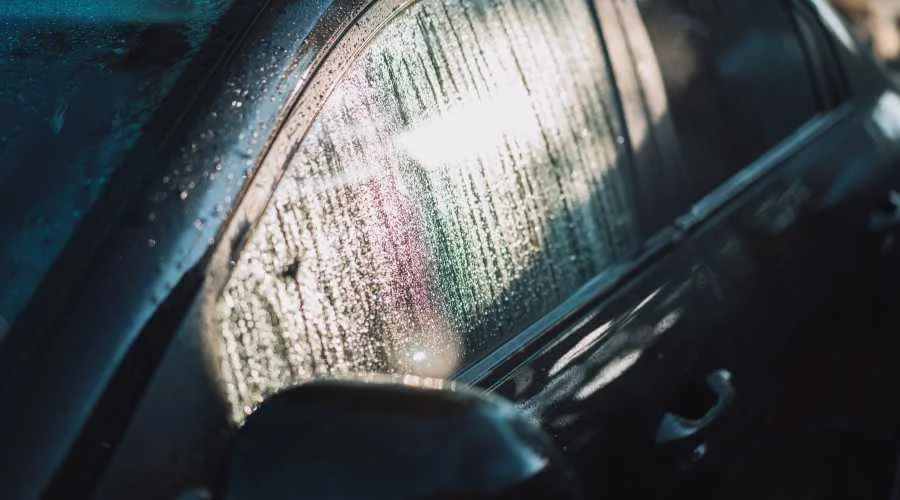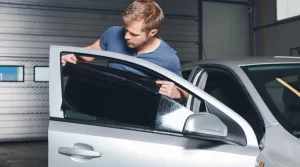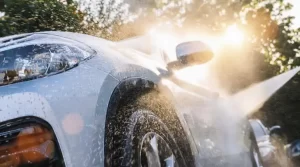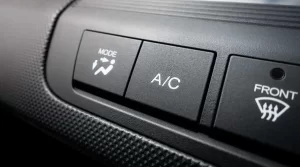Window tinting can be done for a variety of purposes, from full seclusion to personalizing the look of the vehicle. Heat reduction and UV protection are two of window tinting’s most advantageous features, particularly during Georgia’s sweltering summers.
A high-quality window film can help keep the interior of your car cooler by blocking the sun’s infrared rays while also shielding the upholstery from deteriorating. Let’s review everything you need to know about the best car window tint for heat reduction in order to assist drivers in selecting the appropriate tint and tinting services for their vehicles.
Window Films for Interior Heat Reduction
The sun generates a variety of solar energies. We’re all most familiar with visible light, but the sun also emits UV and infrared radiation that can degrade your car’s appearance and feel. On a sweltering summer day, we’ve all experienced the discomfort of riding in a sweaty car.
Fortunately, buying window film that blocks UV and infrared radiation can help you with a lot of summer heat and sun-fading problems. For starters, it ensures that your car won’t feel like a furnace when you open the door and keeps you and your passengers cool and comfortable on warm summer days.
Energy Savings
It might also help to keep your car cooler throughout the summer to increase fuel efficiency. Running the air conditioning in your car can boost fuel usage by 8% to 10%. However, your car’s air conditioning system won’t have to work as hard to keep it cool if the windows are tinted properly.
Guard Your Vehicle
You probably put a lot of money into your automobile and work hard to keep it secure, but you might be neglecting the UV rays that can cause the upholstery inside to fade. Particularly vulnerable to high temperatures, leather upholstery can even dry out, stiffen, and rip when exposed to UV rays. The value of your car will be preserved over time with the help of window film that blocks these UV rays.
Defend Yourself
Last but not least, filtering UV light can aid in defending you from the different dangers connected to repeated UV exposure. UV radiation has the potential to result in many different health issues, such as cataracts and skin cancer. When they go out for a day at the beach, most people are eager to cover up with sunscreen, but many don’t think to protect themselves against the UV rays they are exposed to on long summer drives. However, window tinting functions like sunscreen for your car and can greatly cut down on your exposure to UV radiation.
Other Advantages
Beyond heat rejection and UV radiation filtering, window tinting offers a plethora of additional advantages. Window tinting can help block the sun’s glare for a safer and more comfortable driving experience, provide you and your passengers more privacy, keep your car cooler, and give it a fresh new look. While state restrictions should be taken into consideration when selecting a window tint, car owners should make an effort to select a tint that will provide all of these significant advantages.
Window Film Types
The appropriate type of tint film for your needs will depend on a variety of factors, including your budget, state regulations, and the specific features/look you desire. There are various different tint film types available for use in tinting automobile windows. In light of this, the following are some popular movies available today:
Printed Films
The least expensive window tint film is a dyed film, which can absorb a lot of solar radiation but is less effective at reducing heat than other varieties of film. When put by an expert, dyed films can look fantastic and offer excellent value. They are, however, prone to fading over time.
Metallic Films
One of the greatest forms of window tint film for heat reduction is metalized film. Tiny metallic particles embedded in the film of window tint that has been metalized work to reflect the sun’s rays, including UV rays. A further advantage of metalized window tint is that it improves the structural integrity of your glass and increases its scratch and shatter resistance. Metalized films do have one unexpected consequence, though: they may interfere with your ability to use your radio or cell phone while inside your car due to signal interference.
Pottery Films
One of the greatest solutions for window tinting is ceramic tint because these films are very effective, superior in quality, and attractive. Ceramic window tint may reject heat and UV rays up to 50% and 99%, respectively, of solar heat and rays. They are also strong and long-lasting, and unlike metalized films, they won’t interfere with radio or cell phone transmissions.
Multi-Layer Films that Absorb IR
A multi-layer window film is the greatest there is when it comes to the best of the best. This option costs more, but it allows you to truly benefit from window tinting’s ability to block heat without actually darkening your windows. Maximum visibility is provided by these window tint films while still managing to block UV and solar heat. One of the greatest films is FormulaOne’s Stratos, which features many layers and cutting-edge, heat-absorbing nano-ceramic particles.
Which Genre of Film Suits You?
When determining which sort of window tint film is best for you, there are a number of crucial aspects to take into account. Dyed films will be the most cost-effective solution if you’re looking for something economical. However, metalized coatings or carbon films are your best bet if you want the most heat reduction and UV ray protection. Drivers who desire the heat-reduction advantages of window tinting without actually altering their vehicle’s appearance might use crystalline films.
Regardless of the kind of film you select, it’s crucial to work with a reputable installation provider. Window tint film installation can be a challenging job, and the results will be less than ideal if you don’t get it exactly right. An expert window tinting service, like ours, will be able to walk you through your options and help you select the ideal film for your needs and budget in addition to making sure your window tint is placed correctly.







